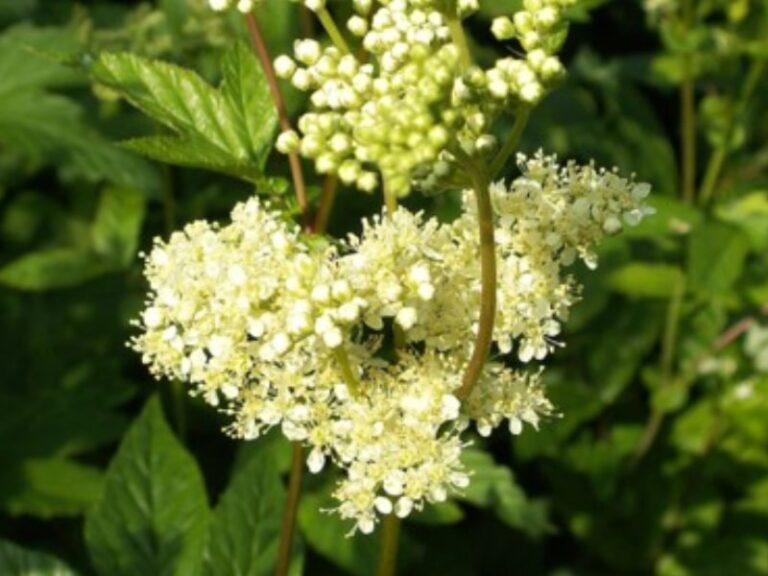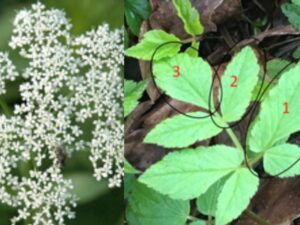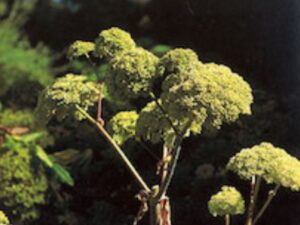Meadowsweet – Filipendula ulmaria
We use the leaves and flowers for herbal medicine. This is one of herbalists best digestive plants, it soothes and protects the mucous lining of the digestive tract and reduces excess acidity and nausea. We use it for heartburn, excessive acidity, gastritis and peptic ulcers. It has a gentle astringency which make it also good for diarrhoea, especially in children. Meadowsweet also contains an aspirin-like compound – salicylic acid – which reduces fevers and relives the pain of rheumatism in muscles and joints. Due to its sweet taste which mirrors its smell, this lovely herb makes an excellent and tasty tea.
Meadowsweet, due to its lasting sweet fragrance even when dried, was widely used to strew the floors in homes and palaces alike. The famous 16th century herbalist Gerard writes of Meadowsweet “it excels all other strowing herbs for to deck up houses, to strawe in chambers, halls and banqueting-houses in summertime, for the smell thereof makes the heart merrie and joyful and delighteth the senses.”
Alongside water-mint and vervain, Meadowsweet was one of the three most sacred herbs used by the Druids. In the 14th century it was known by the names Medwort or Meadwort, meaning the mead or honey-wine herb and the flowers were often used in wine and beer making.
So collect and dry theses fragrant flowers in the summer months and you will have both a very useful and pleasant herbal tea as well as a fragrant reminder of warn summer days even in the dark of winter!
Jayne
And finally
Here is our Meadowsweet poem by sweet Nadia Kingsley enjoy!
By its name
you can tell – Meadowsweet
was anybody’s favourite,
you can tell – Meadowsweet was,
being commonplace, treasured,
you can tell that its flowers,
creamy and clustered,
decorated grassy land,
throughout the sun-filled summers.
Pride or Lady, Meadow Queen,
Bridewort, Meadsweet, Dolloff:
By its name, by any name,
hear – Seek! – and hear – Recover!




